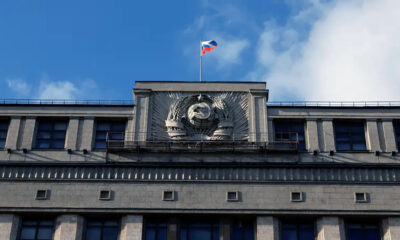Latest News
US was losing war to IEA so it turned to negotiations: Khalilzad
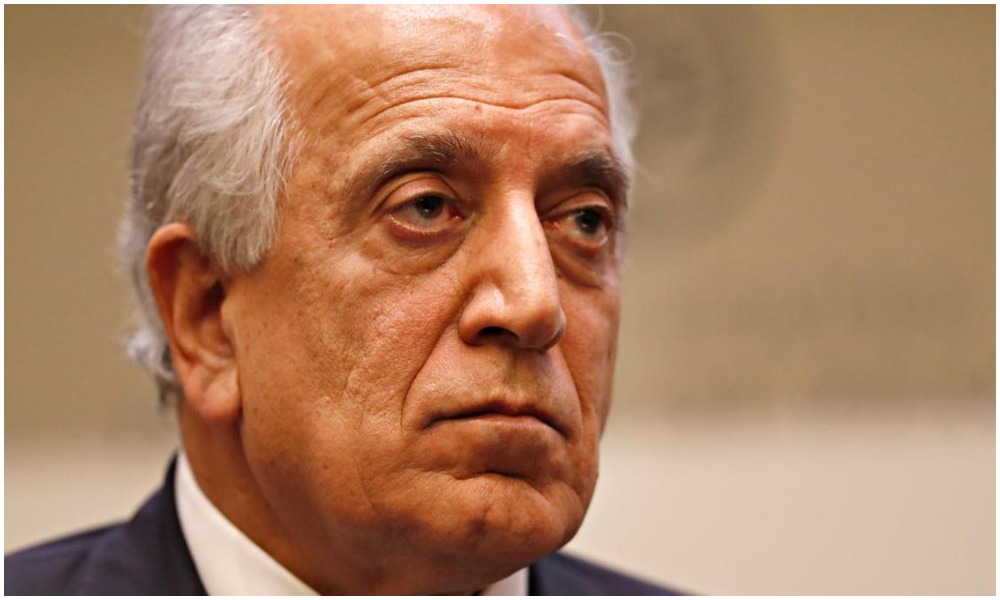
The United States was losing the war to the Taliban (IEA) so it chose negotiations as an alternative, said the former US special representative for Afghanistan Zalmay Khalilzad in an interview with CBS News.
According to him, Washington tried many times to strengthen its position on the battleground but it failed.
“We did not defeat them. In fact, they were making progress on the battlefield even as we were negotiating with them. And the reason we negotiated with them was because militarily things were not going as well as we would have liked. We were losing ground each year,” he said.
Khalilzad blamed former Afghan president Ashraf Ghani for the disintegration of Afghanistan's security sector, saying his escape triggered the chaos i seen in Kabul as the US withdrew its troops.
“But I believe the biggest difficulty was that President Ghani and a few other Afghan leaders did not believe that we were serious about withdrawal for a long time, and they liked the status quo compared to a political settlement in which they might not have the jobs that they had and- and the resources that the US was providing would not be there.
“They preferred the status quo to a political settlement. And then when it became clear that the U.S. was leaving, then they- they miscalculated the effects of-of the continuing war. They were not serious about the political settlement,” he said.
and did not take into account the real situation in the country.
Khalilzad believes that the US counterterrorism mission in the country succeeded as "the terrorist threat from Afghanistan is not what it used to be" and al-Qaeda has been "devastated."
He said the Islamic Emirate of Afghanistan (IEA) is living up to its agreement regarding al-Qaeda stating “we are convinced that they are not allowing- they are not allowing plotting and planning operations by al-Qaeda against the United States.
“We always would like to see more from the Taliban (IEA), from almost any country that we deal with on this issue. We would like them to do more. We would like to expel- to- to get them to expel any al-Qaeda member who was there.”
“We should press them to do more on the issue of terrorism,” he added.
Asked if he knew where the leader of al-Qaeda, Ayman al-Zawahiri was, Khalilzad said: “Well, the [UN] report that I have seen indicates he could be in Afghanistan or adjacent territories.”
However, he said the IEA members he negotiated with in Doha said they did not know where al-Zawahiri was.
He went on to say he did not necessarily believe this and said: “That's why it's very important not to take their word for it, in terms of what they say or what they commit to. That's why we are saying there has to be over the horizon monitoring of the commitments on terrorism and the ability to strike if we see plotting and planning going on.”
On October 18, US Secretary of State Antony Blinken announced that Khalilzad had stepped down as a special envoy for Afghanistan.
Khalilzad said that he made the decision to resign at a time when Washington is beginning a new phase of policy toward Kabul following the withdrawal from Afghanistan in August.
“I was representing the United States to carry out the president's direction. But I believe the biggest difficulty was that President Ghani and a few other Afghan leaders did not believe that we were serious about withdrawal for a long time, and they like the status quo compared to a political settlement in which they might not have the jobs that they had and- and the resources that the US was providing would not be there.
“They preferred the status quo to a political settlement, he said.
Khalilzad also stated that he would have liked to have seen a negotiated settlement but implied that Ghani did not give this a chance.
He said Afghanistan was close to his heart, especially as he had been born in the country.
“I was born there, and I have spent a lot of my life on behalf of the United States focused on Afghanistan. I helped them with their constitution. I helped them with their first election. I established an American university in-in Afghanistan.
“I was very encouraged by the first years, the enthusiasm, the hopefulness that I observed there,” he said adding that the “political elite of the country made terrible mistakes”.
He said they “allowed corruption, misused elections, democracy, and didn't treat their security forces perhaps the way they should have been treated.
“And we faced the- the circumstances we did.”
In conclusion he said: “Now it's time for the Afghans to take ownership with non-military assistance, unless we are threatened, then our military should be in play. But we should not abandon Afghanistan, turn our back on it -- use our influence as a country with enormous capability and influence to encourage the emergence of an Afghanistan that the Afghans aspire for.”
Latest News
Russian law paves way to recognise Islamic Emirate of Afghanistan
No country currently recognises the IEA government which regained control of Afghanistan in August 2021.
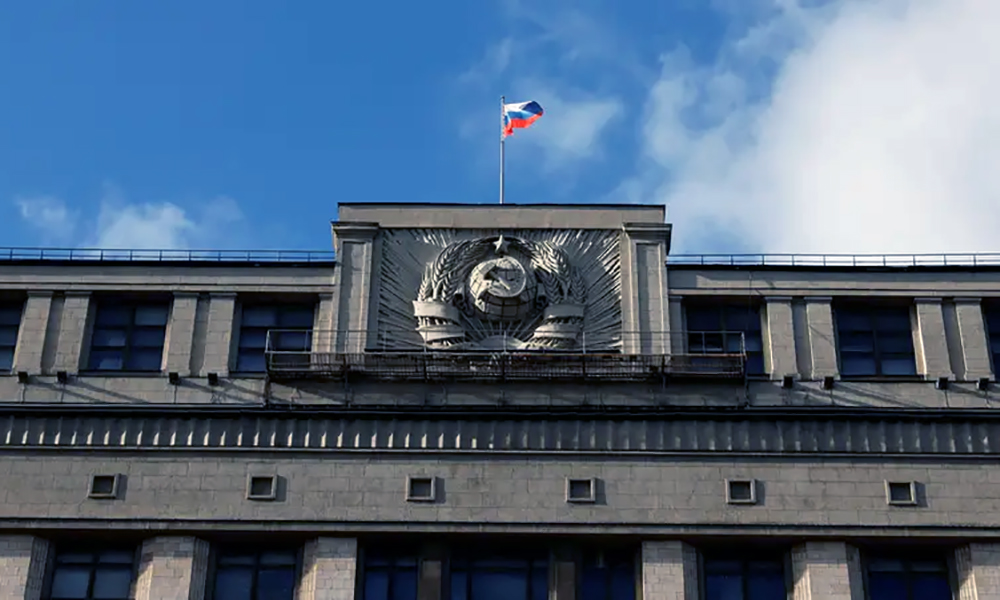
Russia's parliament passed a law on Tuesday that would allow courts to suspend bans on groups designated by Moscow as terrorist organisations - paving the way for it to normalise ties with the Islamic Emirate of Afghanistan annd potentially with the new leadership of Syria.
No country currently recognises the IEA government which regained control of Afghanistan in August 2021.
But Russia has been gradually building ties with the Islamic Emirate, which President Vladimir Putin said in July was now an ally in fighting terrorism.
In addition, the leader of Russia's Muslim region of Chechnya, Ramzan Kadyrov, called on Monday for the removal of Syrian group Hayat Tahrir al-Sham (HTS) from Moscow's list of banned groups.
HTS spearheaded the toppling of Syrian President Bashar al-Assad earlier this month.
Kadyrov, a close Putin ally, said Russia needed ties to the new Syrian authorities to ensure stability and prevent a humanitarian catastrophe.
The Kremlin said this week that Russia was in contact with the new leadership in Syria, where it hopes to retain the use of an airfield and a naval base that give it an important military foothold in the Mediterranean.
Security threat
Moscow sees a major security threat from Islamist militant groups based in a string of countries from Afghanistan to the Middle East, where Russia lost a major ally with the fall of Assad, Reuters reported.
In March, gunmen killed 145 people at a concert hall outside Moscow in an attack claimed by Islamic State.
U.S. officials said they had intelligence indicating it was the Afghan branch of the group, Islamic State Khorasan (ISIS-K), that was responsible.
However, the IEA has repeatedly said it is working to wipe out the presence of ISIS-K in Afghanistan.
Russia’s history in Afghanistan
Russia has a complex and bloodstained history in Afghanistan.
Soviet troops invaded the country in December 1979 to prop up a Communist government, but became bogged down in a long war against mujahideen fighters armed by the United States.
Soviet leader at the time, Mikhail Gorbachev, pulled his army out in 1989, by which time some 15,000 Soviet soldiers had been killed.
Latest News
Kunduz families get much needed food aid, thanks to Bayat Foundation
The Bayat Foundation is a stalwart in terms of assisting needy people, not only through its winter food aid campaign but also in times of disaster.
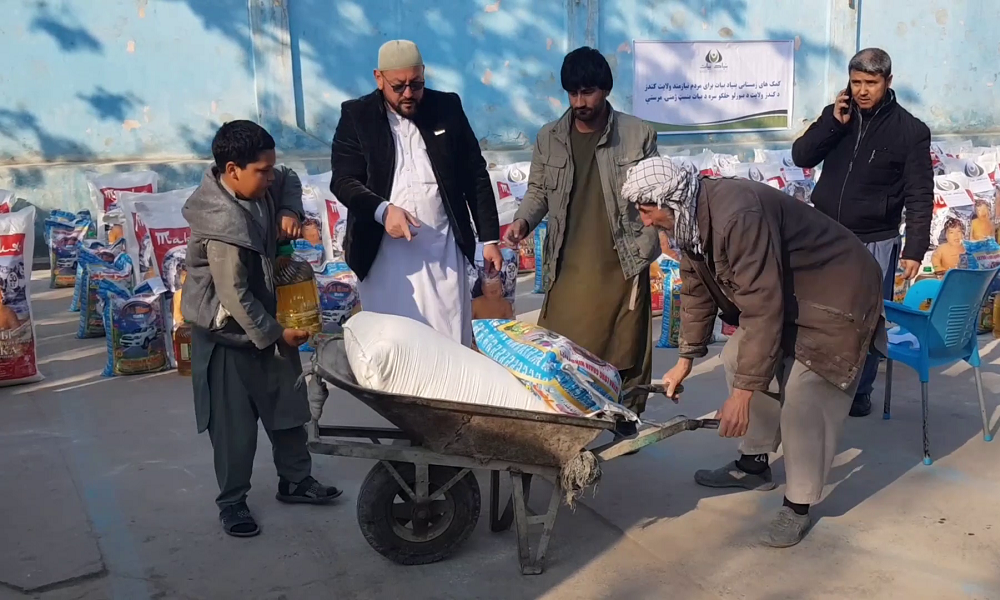
As part of its ongoing commitment to supporting needy families in winter in Afghanistan, the Bayat Foundation has once again provided essential food aid to hundreds of needy families in Kunduz province.
The Bayat Foundation’s representative in the northeastern zone, Khair Mohammad Saljoqi, explained that the relief packages included flour, rice, and oil, which were distributed to the needy after a thorough survey.
He stated: “The Bayat Charity Foundation continues its annual winter aid distribution [program]. This year, we have prepared winter relief packages for the needy in Kunduz, and today we are witnessing the distribution.”
Meanwhile, recipients have expressed their gratitude for the timely delivery of the relief packages and have called for further assistance from other humanitarian organizations for impoverished families.
One of the aid recipients, expressed his appreciation, saying: "We are very grateful to the Bayat Foundation."
Another recipient said: “We are very happy that the Bayat Foundation has helped the poor people. May God give strength to the Bayat Foundation to continue helping needy families, as it is winter, the weather is cold, and there is no work.”
Additionally, several women, who are the sole breadwinners for their families, shared that they have no food or warm clothing to get them through winter and are in desperate need of such assistance.
They also thanked the Bayat Foundation for their assistance.
Rukhshana, one of the recipients, said: “Please help us. We don’t have a breadwinner at home. I have small children. Traders should help us. We have no firewood, no coal. We thank the Bayat Foundation for helping us.”
The Bayat Foundation is a stalwart in terms of assisting needy people, not only through its winter food aid campaign but also in times of disaster.
Foundation officials have meanwhile stressed that given the growing poverty and worsening hardships people are facing in the country, their winter aid program will continue to be rolled out to other provinces.
Latest News
India hoping to import coal and marble from Afghanistan

A high-ranking delegation from India's Gujarat Chamber of Commerce has expressed interest in importing coal and marble from Afghanistan and investing in Afghanistan's coal mining sector.
The officials expressed interest at a meeting with Ikramuddin Kamil, acting head of the Afghan consulate in Mumbai, India.
Kamil assured them that he would facilitate an online meeting at a technical level with the relevant Afghan institutions in this regard.
He said security is ensured in Afghanistan, corruption does not exist and there are investment opportunities for Indian businessmen.
-
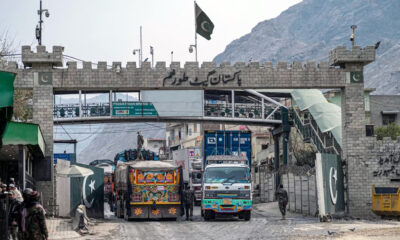
 Business5 days ago
Business5 days agoDaily truck clearances at Torkham drop from 400-500 to 5-10
-

 Latest News4 days ago
Latest News4 days agoAfghanistan seals T20I series victory over Zimbabwe
-

 Sport5 days ago
Sport5 days agoLanka T10: Jaffna Titans’ skipper advocates for format to expand globally
-

 Latest News5 days ago
Latest News5 days agoIran says it spends over $10 billion annually on Afghan refugees
-

 World4 days ago
World4 days agoSyrian clerics in former Assad stronghold call for national unity, democracy
-

 Latest News4 days ago
Latest News4 days agoU.S. sentences Afghan man to 30 years in prison for narco-terrorism and witness tampering
-

 Latest News5 days ago
Latest News5 days agoDAB has collected over 7 billion Afghanis in worn-out banknotes over past year
-

 International Sports3 days ago
International Sports3 days agoMessi vs Ronaldo: A look at their market values over the years




